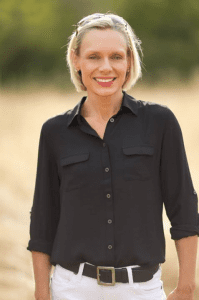I’m never quite sure when it’s going to happen. You would think after all these years, I would have some kind of warning sign before it starts. The situations are different. The settings and people change, but the feeling is always the same.
I was probably 8 years old when I first realized it was there. My older brothers were watching the original Friday the 13th movie. I snuck downstairs and watched from the steps. I didn’t quite understand that it was fiction. I started having thoughts about someone doing that to me — killing me. Later that night, I woke up in a cold sweat. It seemed to start from inside. My stomach was in knots, my pulse was racing, and I found it hard to breathe. I tried to call out for my mom and dad, but I found it difficult to move any part of my body. I was paralyzed with fear.
I had no idea at age 8 that I was having my first anxiety attack.
Anxiety has been a part of my life for as long as I can remember. Earthquakes were my first major trigger. I used to lie in bed going over my escape plan in case one hit during the night. I was told that they sound like a train before the shaking starts. Any noise I heard made me activate my plan.
The rational part of my brain knew there was not an earthquake, but my fear and anxiety always won out.
As I got older, the anxiety became more debilitating. Car crashes, planes veering off runways, home invasions, my parents dying, mass shootings — anything that provokes fear in people, I perseverated on.
Social anxiety, general anxiety, test anxiety, compulsive behaviors, fear, worry, apprehension, nervousness. I’m not sure which one came first. Daily tasks are challenging because I view them through a lens of worry. It takes me longer to get things done. I process more. Spend extra time going over plans — verbalizing them out loud so I don’t miss anything.
Repeating myself often, because for some reason, I find comfort in hearing things more than once.
Then it happened. I was finally able to say the three words that seem so difficult to say.
I need help.
I was 40 years old.
I knew she had to ask all the questions. Go over the list of signs and symptoms and check the boxes that I answered “yes” to. My eyes traveled down the page and I noticed that most of the “yes” boxes were marked with an X.
I know anxiety has always been something I live with, but sitting in my doctor’s office that day was the first time I saw it on a piece of paper. The first time I realized that maybe it has taken over my life.
After she completed the questions, she looked up and asked me to describe what it feels like — how it impacts my life. I found myself stumbling. I couldn’t answer why I have anxiety. I wanted to shout at her, “Have you seen my fingernails?” There’s nothing left of them. Sometimes the energy in my body is so intense that the only way I can relieve it — even the smallest amount — is to pick and chew my nails until there is nothing left.
I couldn’t come up with a complete thought — one that made sense after it left my mouth. How do I explain these suffocating thoughts and feelings that occupy so much of my life?
I finally just told her that my anxiety is debilitating — I’m scared. I hate it and I’m not sure it will ever leave me.
She tried to reassure me that with the right treatment plan, I can gain control over this. Control. Isn’t that what anxiety is? Trying to control situations that I am afraid of. Control. Something I try to do too much — too often.
Maybe the right treatment plan is to control less.
I know what I worry about doesn’t makes sense. Irrational, illogical, emotional, crazy. Those words describe the thoughts in my head.
Sometimes I just wish I could hit the pause button.
I know I need to be reassured constantly. There are many times I want to apologize to the people in my life. Tell them that I’m sorry that I need to be told over and over again that it is going to be OK.
I can imagine that living with me is difficult, and I’m sure loving me is even harder.
I know what I say and do sometimes is irrational, but it is very real to me.
Sometimes it is just downright exhausting and my body screams relax, but I can’t sleep.
I’m not sure if it will ever leave me. If I will wake up one day and be free of the pressure — the weight. What I do know is that there are days when it doesn’t take over.
I find on those days that there is one common theme. I choose to live with hope. My heart wins out.
When I lead with my heart, I find that my body slows down. It’s easier to breathe. My thoughts are clear, my smile is genuine, and my life feels full.
I have learned over the years that my journey can and will be filled with hope. I do not have to let anxiety define who I am.
If you think you may have an anxiety disorder, contact your general care physician for help.
(This post originally appeared on The Huffington Post and is reprinted here with full permission.)


 About the Author: Sara Lindberg
About the Author: Sara Lindberg
I have been on and off with someone who is 45 with depression anxiety and a few other things as well. I am 41. I have 2 elementary age kids and she has 1. I love her, no matter what she has going on. She is a beautiful person inside and out. Its been years and i have not given up on her even when she has given up on me. I love her and her daughter very much. I try not to be overwhelming and just give her her time when she needs it. But sometimes that time last 1-6 months, it’s tough. As i am sure it is for her. However, i love her very much and understand. But this is taking its toll on me….i can look at it as disrespectful for not getting a text on my kids b days or any other event. But i understand. I do not want to give up on her. She is worth it. her Anxiety etc do not define her….her wonderful personality and beautiful heard do. However I do not get a chance to let her know as much as I would like…sometimes for long periods of time. I never know what shes up to or if she met someone else. I miss her…i love her and her daughter…
Whether prayers can be of any help?
I split with my partner because he didn’t like my boys they are 22 and 24 and his kids in their late 30 didn’t like me my partner lost his wife to cancer about 5 years ago. Also he wrote a letter to my father saying how bad my children are treating me also he had a gambling problem.
His daughter is a control freak we are trying to make things work but I cannot get out of my mind how she treated and the way she docent like me.
How can I get these thoughts out of my mind .
I do like him
I am sixty yrs old and have lived with the type of panic and anxiety you are describing.. I can honestly say that I rarely use honk about it today. Occasionally, a feeling or unusual stress will make me pull back and practice all the techniques I’ve learned. 1-learn as much about anxiety as you can 2-exercise, for me it was walking, a lot! 3-work on desensitizing. Your fears 4- find a good therapist to talk it through 5-for me, taking the right medication really, really changed my life. It all works, but not overnight. Peace
Thanks Cathy for sharing this.
I am supposed to be on an airplane right now, but I’m not. I had planned to go to a friend’s 40th birthday weekend, and wanted to help her celebrate. But as the weekend approached, I became overwhelmed with anxiety. Immobilized. The whole weekend – from flying to sleeping on air mattresses to staying with strangers (I don’t know her other friends) to leaving my children and husband – became unbearable to consider. My friend is so upset that she won’t speak to me. I feel ashamed. Alone. Inadequate. Broken. Your words brought me solace. Despite your anxiety, you carry hope. And I do, too. Like lockets worn around our necks, carry hope around for each other.
I just want to say I know that feeling of frustration that comes with wanting so bad to do something, and then just thinking (or overthinking) about it brings overwhelming anxiety. I find myself turning down activities once in a while if it’s too “complicated” or I have to make too many decisions. I miss when I was younger and could wing it and not worry so much about every detail. Sorry you had to miss time with your friend – maybe when she gets back you can talk to her about it and plan a date together to celebrate.